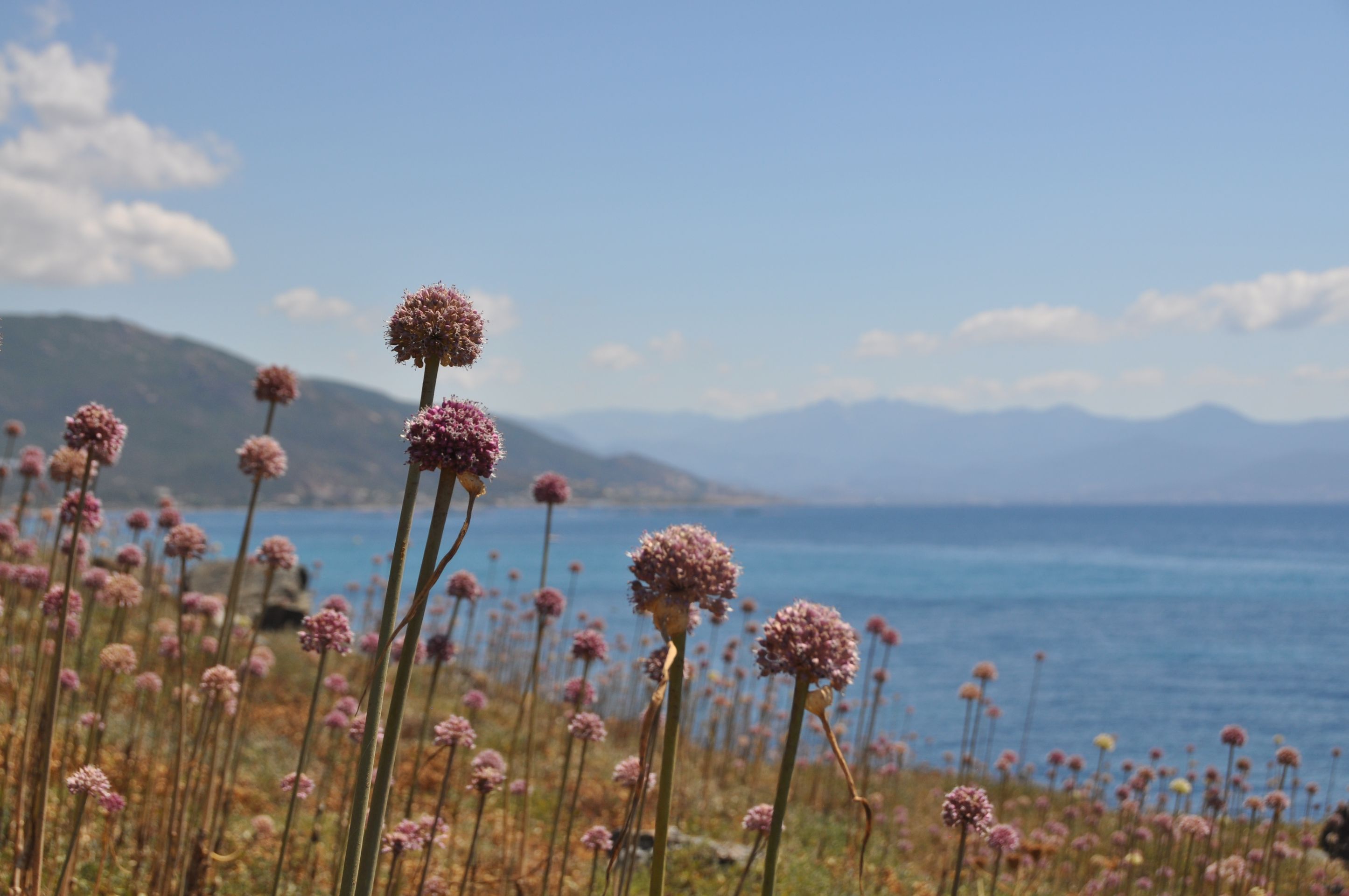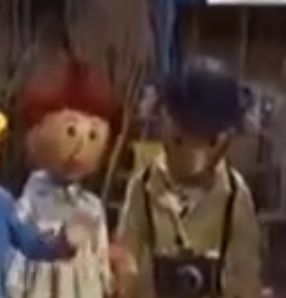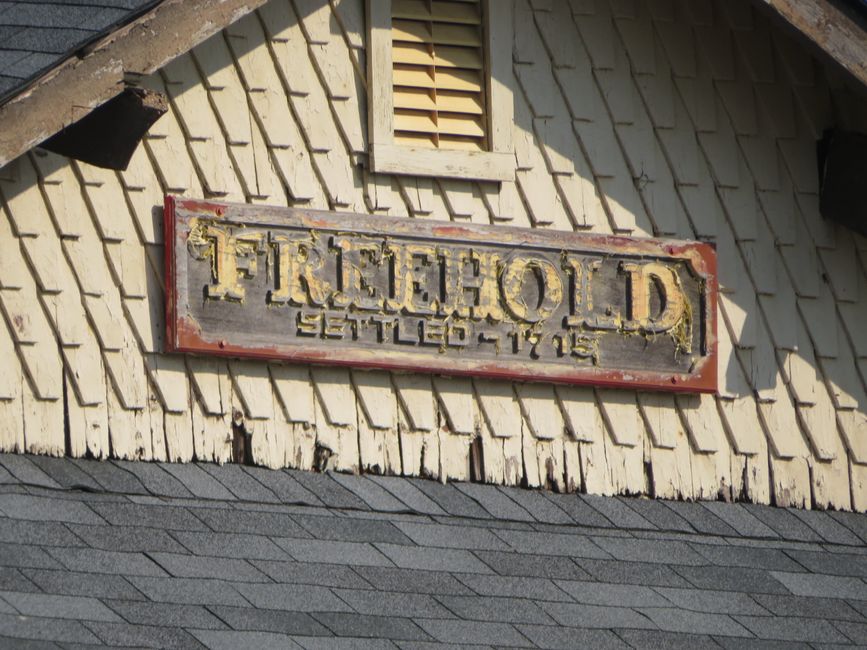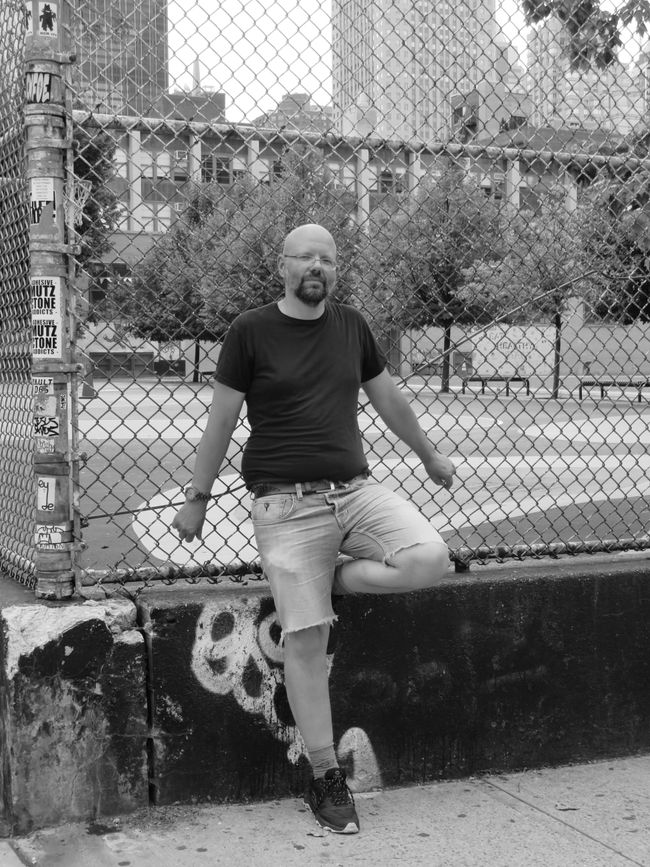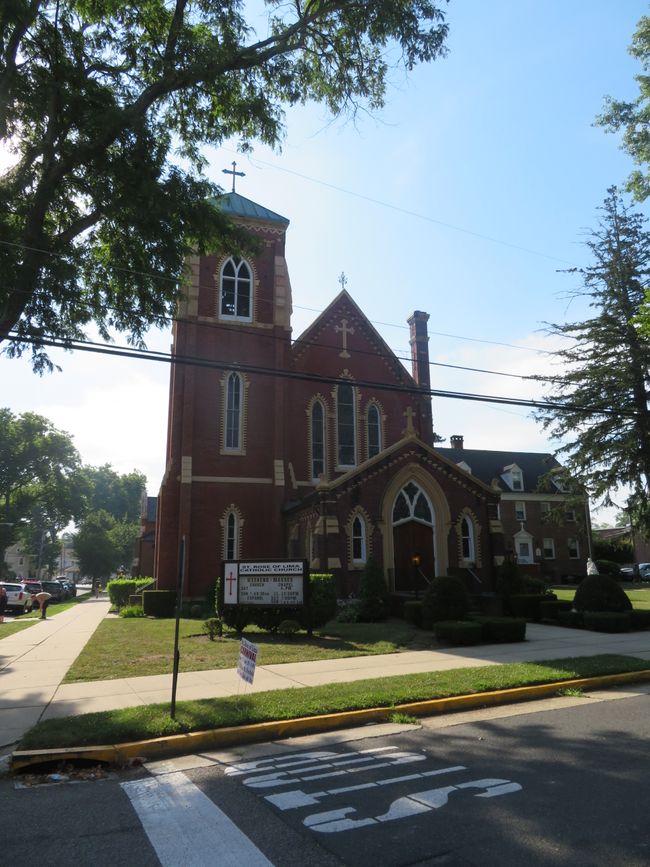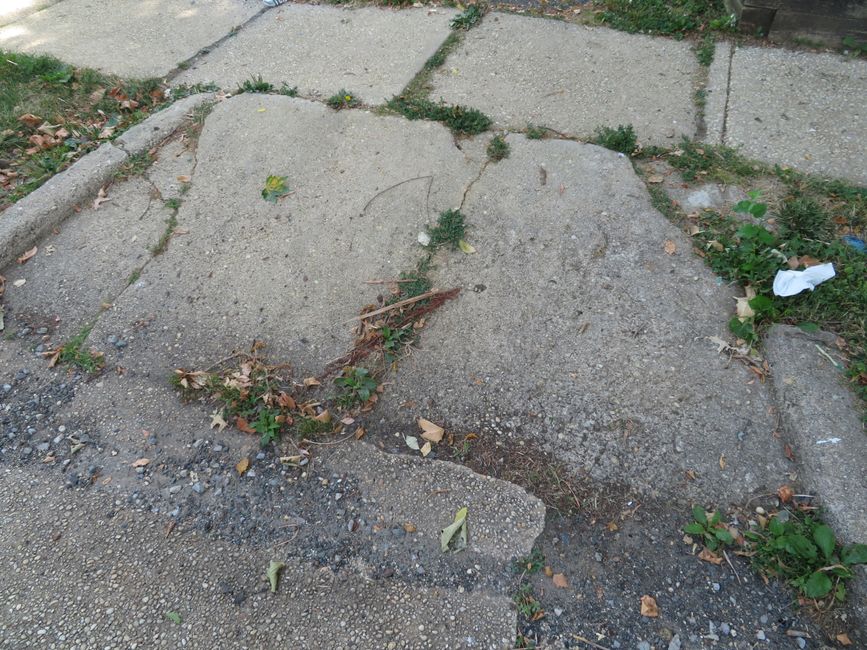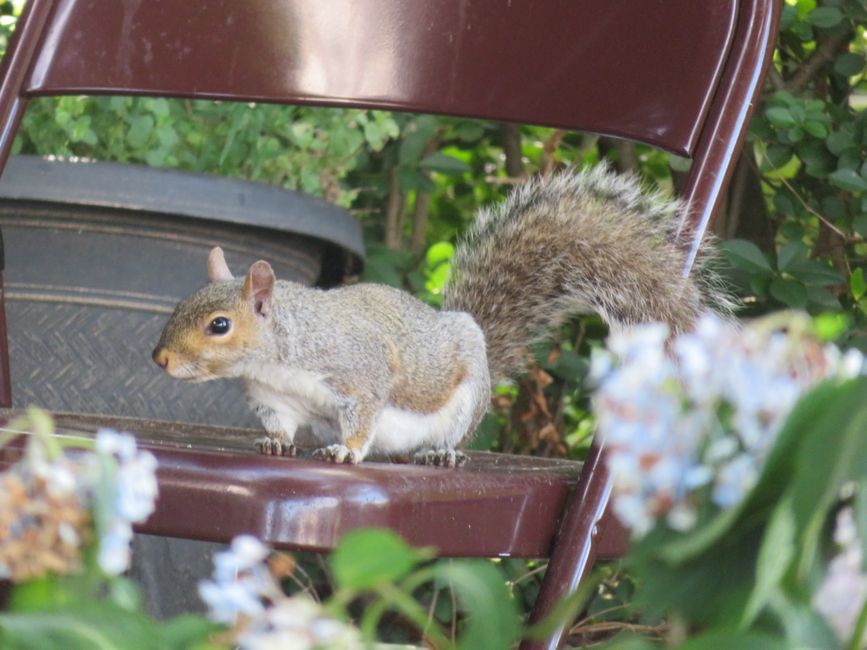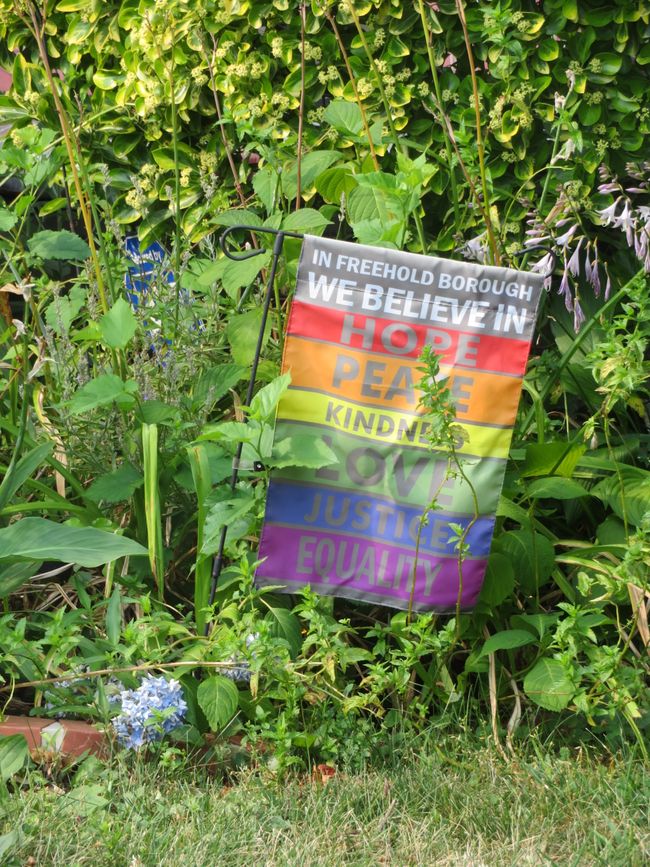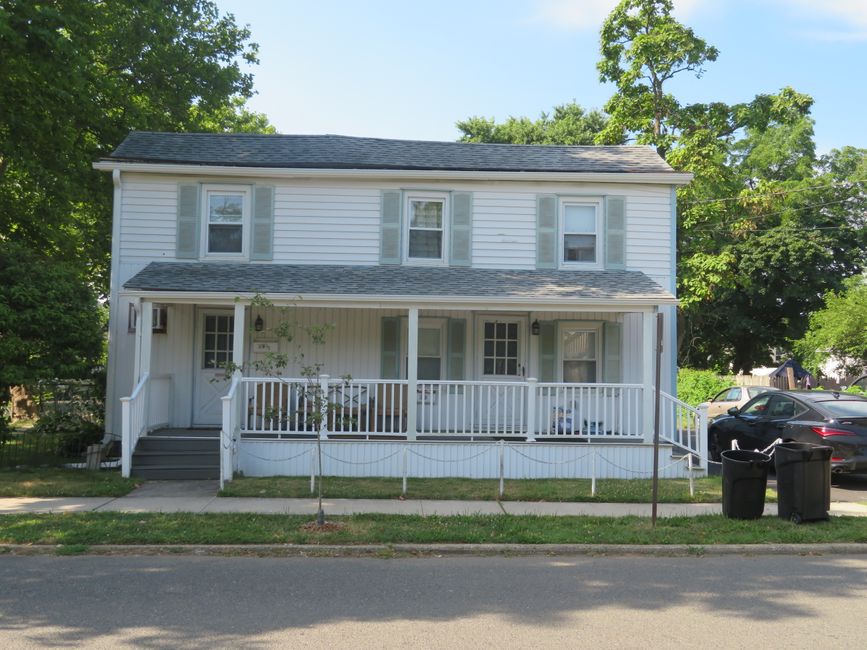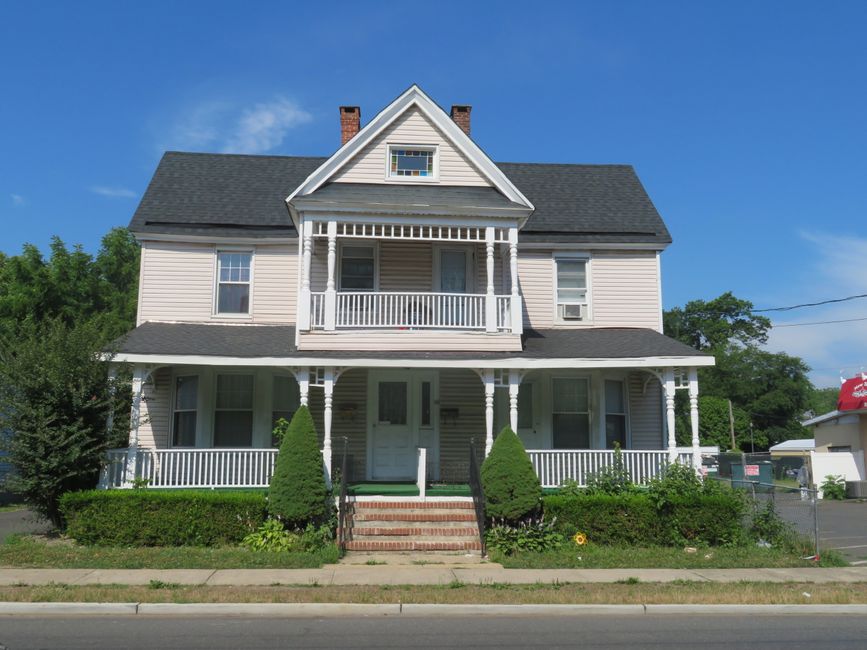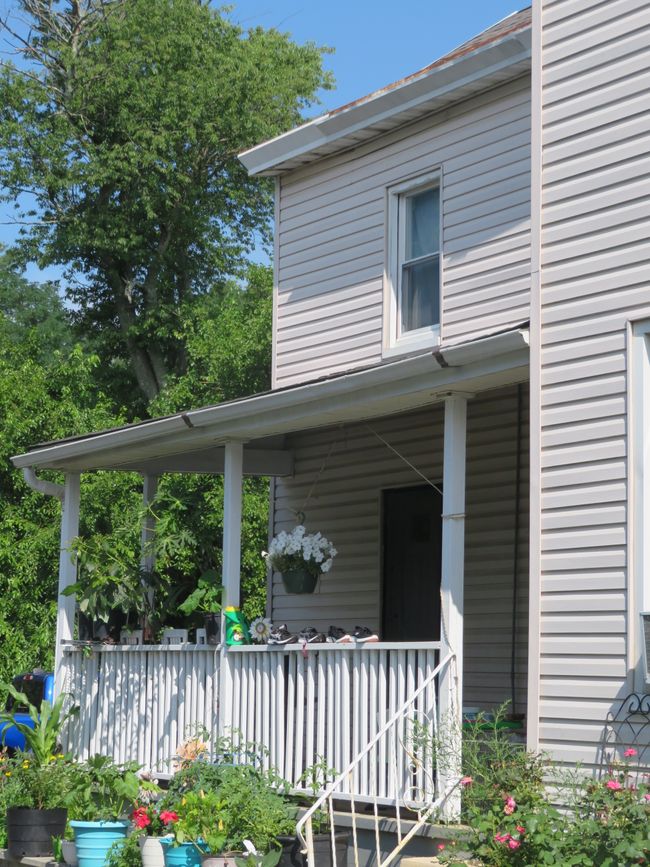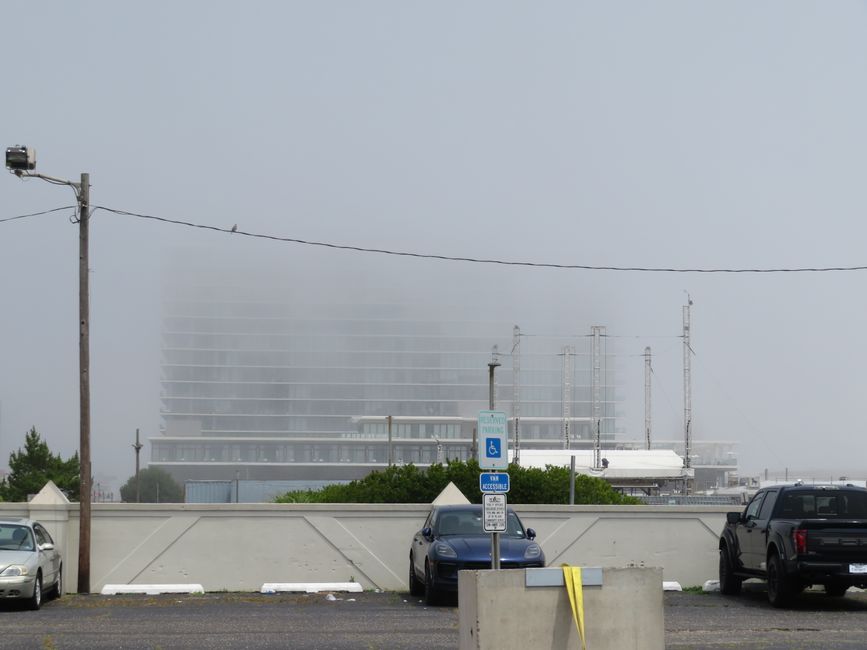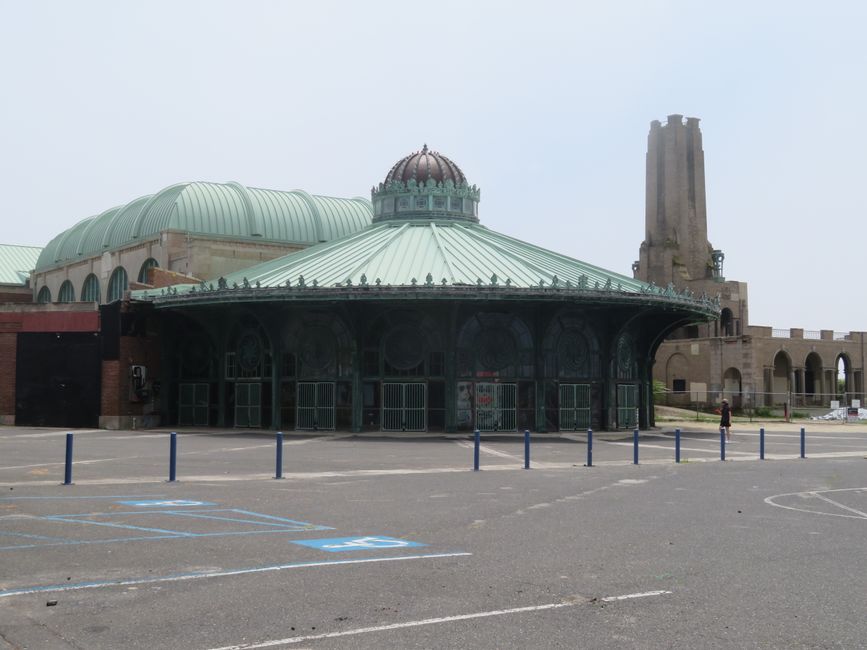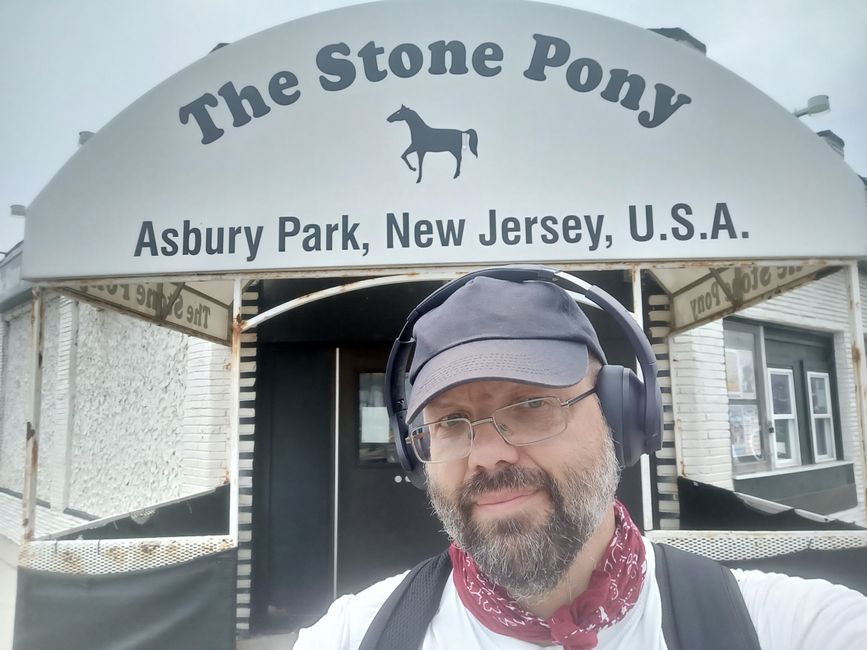The Boss and His Underling or Encounter with Harold
प्रकाशित: 13.07.2024
समाचार पत्रिका के लिए सदस्यता लें
This blog post is primarily about Bruce Springsteen and Mr. Sleeve's love of him, so it's a little different from the other travel blog posts here.
When Mr. Michael Ende wrote down the adventures of us Lummerlanders, he wrote – in a nutshell, I think – about me, Mr. Ärmel: "[He was] mainly a subject and was ruled." That is not true. Apart from my love of photography and of Mrs. Waas, I would not let myself be ruled by just anyone. King Alfons the Quarter to Twelve is simply a wise king. Personally, I am more of an anarchist; I find subservience abhorrent.
But besides His Majesty, there is someone else for whom I develop somewhat embarrassing admiration: The “Boss”, that is, Bruce Springsteen.
Since I've already been to New York City (more about that in a previous blog post), I really wanted to go to New Jersey and follow in the footsteps of my favorite musician:
The journey is a bit confusing. The central bus stop Port Authority is easy to find and I also quickly found Gate 326 for the 139 bus. However, as the station is marked by rather unfriendly and absent staff, I need a cleaner to tell me which zone (13) I need to book for. He is also kind enough to point out the changed gate. Once on the bus in NY, you first have to throw your ticket to the driver. So I could probably buy the cheapest ticket and go to the last stop. After the bus takes us out of New York for 45 minutes without stopping, there are 29 stops before I arrive in Freehold. There I can buy the next ticket to Asbury Park, which was not possible in NYC. They can't sell me a return ticket to NYC here either - I have to do that in Asbury Park.
In Freehold, it's only a short walk that takes me through rows of wooden houses with front porches, decorated alternately with US flags and patriotic slogans and (unfortunately less often) with rainbow flags and cosmopolitan slogans, and finally leads me to the Springsteens' first house, or rather to the parking lot that is now in its place. The Springsteens' old house was a shack for the first six years of Springsteen's life, heated by just a single kerosene stove. Today, the weathered old driveway can still be seen as a sign that there used to be a house here. Next to the parking lot is St. Rose of Lima Church, which Springsteen describes in his autobiography.
My tour continues to the still standing house at 39 ½ Institute Street, which looks rather unkempt. There is nothing to show that the county's famous son once lived here, no plaque or anything else.
Then we go on to 62 South Street, where Springsteen lived as a teenager and later alone with his older sister (about whom he wrote "The River") after his parents had moved to California. While I'm taking photographs, Harold* (*name changed) comes up to me. He is excited that I have come all the way from Germany, speaks a little German with me (he has been in Germany and China a lot and learned the languages) before we continue in English and he takes a photo album out of the house that he would only show to fans who made a friendly impression. It shows pictures of him as a boy with Springsteen's parents, whom I recognize. He had already lived there when the Springsteens moved in. Even today, he gets free tickets from management when Springsteen plays nearby. When he was a boy, Springsteen, who was 6 years older than him, played baseball with him and told him that he wanted to be a professional baseball player. He also heard Springsteen practicing until 2 a.m. when he had his first guitar and shouted over to him to finally stop. Harold shows me the window of the room where Bruce lived, shows me an old tree that was already there at the time and tells me how the young Bruce sometimes slept on the balcony on sultry summer nights. He shows me the porch and the screen door, which would sometimes bang when the young Springsteen had female visitors and which was later sung about in one of his most famous songs: "The screen door slams / Mary's dress sways / Like a vision she dances across the porch / As the radio plays..."
Contrary to Springsteen's portrayal, he was hardly ever rejected by women. "To me it seemed, he never had trouble with that," reports Harold. He also said that it was no longer the original door. He had seen it in the trash at the time and is still annoyed that he didn't save it from the trash.
Harold also tells how Springsteen, as a boy, stood on tiptoe to look into the Wilkinsons' living room* (*again, the name has been changed) and see the piano that was there. Bruce was fascinated by it and the piano actually plays a major role on the first albums.
Harold tells me that Springsteen seems to exaggerate his father's mental problems somewhat artistically. His father was just a normal worker who tried to make ends meet for his family and who was worried that Bruce might end up with the drugs that were omnipresent at the time through bad company. While Springsteen's friends and bandmates all smoked weed, Springsteen apparently never did. Harold also tells of the episode when his father cut Bruce's long hair after he protested wildly and Springsteen Jr. only wore a baseball cap for the next few weeks.
Then Harold drifts into politics without being asked. He tells me that he doesn't have a Trump sign in his front yard out of respect for Springsteen's views and those of most of his fans. He talks about how the working class has been better off under Trump and that Trump is standing alone against China. Europe is cozying up to China and Biden is completely corrupt when it comes to China. The Europeans' fears and his belief that the system of checks and balances will not survive another few years of Trump and that America will become fascist are exaggerated. We are being lied to by liberal media like CNN. He hasn't watched TV for 10 years. Even Fox sees Harold as part of the conspiracy against Trump. Americans will not tolerate a dictatorship.
After Harold asked me about my profession earlier, he now mistakes me for a psychologist and asks me for a diagnosis for Trump. I said that I think Trump has a narcissistic personality disorder. Hatold agrees. But that helps if you stand up against China. It is shocking that he does not even question that Trump is mentally ill and that he will vote for him anyway. He continues to argue with me, rejects my objections and finally gives me his email address to continue the discussion online. We'll see...
I then continue on to Asbury Park, where Springsteen had his first successes and which gave his first album its name. With 30°C and fog coming from the sea several meters high, it is more humid on the beach promenade than I experienced in the rainforest. I am happy for five minutes when I sit in the train to New York with the air conditioning turned down far too low before I have to get my jacket out to avoid freezing. Here, too, my ticket is taken away and replaced with a cryptic piece of paper that is clipped to my seat. Can I still walk around the train or do I have to stay seated with my ticket? No matter, I am tired and doze off, reviewing my impressions of small-town America and thinking about Harold and the impending end of democracy in America, thinking about Springsteen and looking forward to seeing Mrs. Waas again in the hotel.
समाचार पत्रिका के लिए सदस्यता लें
उत्तर
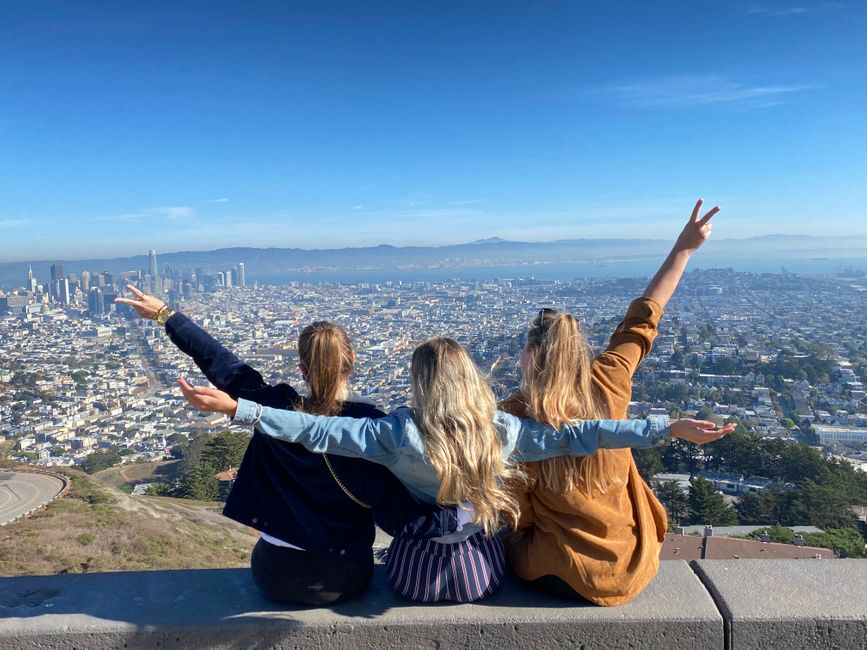
यात्रा रिपोर्ट यूएसए
